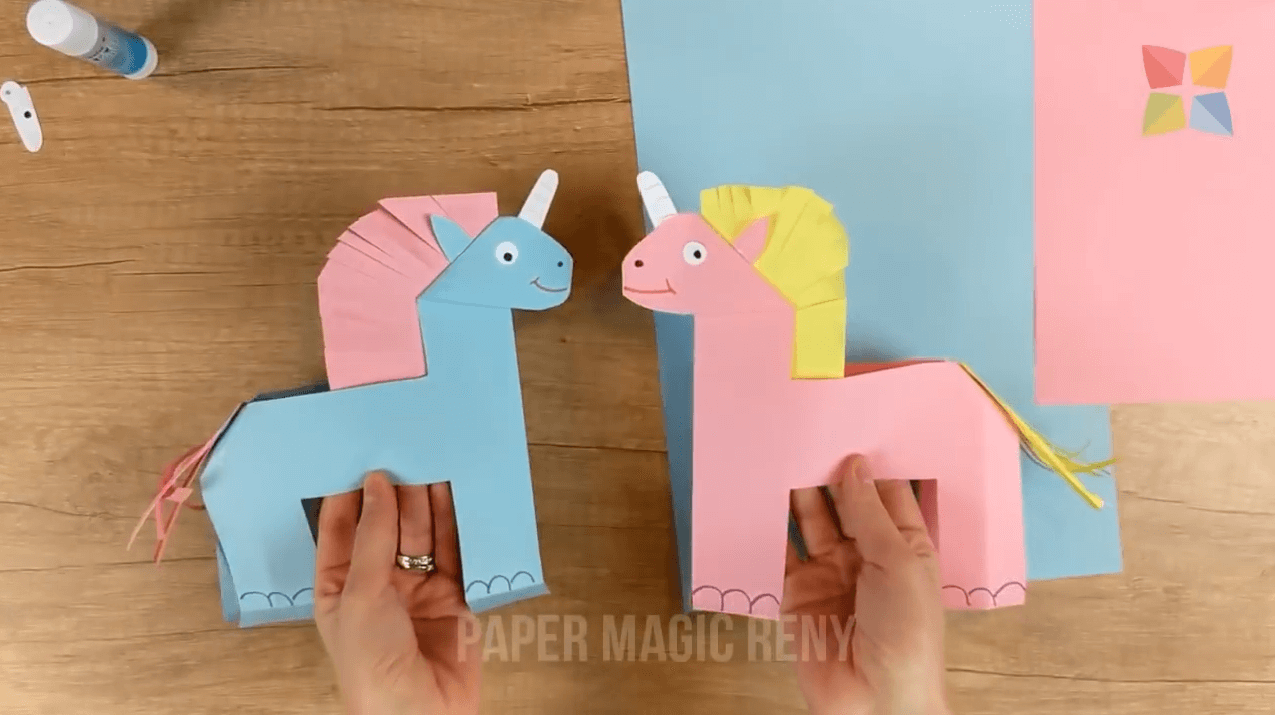General terms and conditions
Beleduc Lernspielwaren GmbH (Beleduc)
1. General provisions
1.1. In so far as reference is made in the following regulations to the “general terms”, this refers to the present general terms and conditions of BELEDUC LERNSPIELWAREN GmbH (hereinafter referred to as Beleduc), of Olbernhau, Germany.
1.2. These general terms form the basis of all legal relations with Beleduc’s customers. They only apply with respect to entrepreneurs within the meaning of Article 310(1) of the German Civil Code (BGB).
1.3. No commissions, orders or agreements – in particular in so far as they amend these general terms – shall become binding until they are confirmed in writing by Beleduc. All deliveries, including future deliveries, made by Beleduc, including proposals, consultation, information and other additional services, are carried out exclusively on the basis of these general terms.
1.4. Contrary terms and conditions are expressly rejected.
2. Quotations, quotation documents
2. 1. Quotations issued by Beleduc are provisional unless it is confirmed that they are binding.
2. 2. In so far as orders by the customer are to be qualified as quotations in accordance with Article 145 BGB, Beleduc may accept them within 2 weeks.
2. 3. Beleduc reserves all rights of ownership and proprietary rights to quotations, figures, drawings, supplied data and other documents; these may not be made available to third parties and may only be handled within the framework of the statutory provisions of Sections 69 a ff. of the Copyright Act (UrhG). Samples associated with quotations, if they have not passed into the possession of the purchaser by means of payment, are to be returned on request without delay if the order is not granted.
3. Price, payment, default in payment
3. 1. Unless a different agreement is reached, the prices are on the basis of ex works (free carrier) without the statutory value added tax, taxes, customs duties and any fiscal charges. In so far as such taxes, customs duties or fiscal charges arise, they are to be paid separately by the customer.
3. 2. If deliveries are made and/or services are provided more than four months after the conclusion of the contract, Beleduc reserves the right to change the prices appropriately if costs fall or rise, in particular as a result of wage increases or changes in materials prices. The customer shall be provided with proof of these on request.
3. 3. Unless a different agreement is reached, invoices are to be paid within 10 days of the invoice date with 2% discount or within 30 days of the invoice date without deduction.
3. 4. Freight charges, service charges, handling charges and other service charges are in principle payable without deduction.
3. 5. Express written agreement is required in order to change the due date. The granting of credit periods means that although payment is due the customer is not in default before the credit period expires.
3. 6. Beleduc only accepts discountable bills if this has been expressly agreed. When bills of exchange or cheques are accepted, the debt shall only be discharged on final encashment and crediting to a Beleduc bank account. Discount charges and all costs and expenses arising in connection with the encashment of the amount of the bill of exchange or cheque are to be borne by the customer. In the case of bills of exchange and cheques in foreign currency, the amount credited to Beleduc’s account is the sole factor determining the level to which the liabilities have been discharged. The encashment of cheques as part payment does not give rise to remission of the debt, even if the amount of the cheque corresponds to a significant part of the liabilities.
3. 7. In the event of non-compliance with the payment terms, interest on arrears in the amount of 8% above the base interest rate, but amounting to no less than 12.0% per annum, shall be charged. For every demand for payment going beyond the basis of default in payment, Beleduc may demand damages in the amount of €10.00 per demand for payment. Beleduc remains entitled to provide proof of a higher loss; the customer remains entitled to provide proof of a lower loss.
3. 8. In the event of default in payment or the endangerment of the claim by means of a deterioration in the customer’s creditworthiness, Beleduc is entitled to demand payment of its receivables or to demand that securities be provided. This also applies irrespective of the term of any bills of exchange. In addition, Beleduc is also entitled to effect outstanding deliveries only if payment is made in advance or if securities are provided. Deterioration in the customer’s creditworthiness exists in particular if a credit sale insurance policy taken out by Beleduc is terminated or if the insurance company is not offering or would not offer any insurance cover with regard to the customer in future. If the customer’s credit status and financial situation deteriorate considerably, in particular if the party issuing a credit sale insurance policy taken out by Beleduc declines insurance cover, Beleduc is entitled to demand immediate payment of all receivables, both those that are due and those maturing in the future.
4. Prohibition of assignment and setoff
4. 1. Beleduc may set off all its claims against all the customer’s counterclaims. Beleduc remains at liberty to decide against which counterclaim setoff is effected.
4. 2. The customer may only assign rights and claims arising from contracts with third parties if it has Beleduc’s prior consent. This does not apply if the customer is a trader within the meaning of the Commercial Code of the Federal Republic of Germany (HGB) and for him the legal transaction which forms the basis for the claim is a commercial act (sentence 1 of Article 354 a HGB). In this case, however, the assignment of the claim does not give rise to any commitment with regard to Beleduc. Instead, Beleduc may continue to render services to the previous owner of the claim in order to discharge the debt. This also applies if Beleduc is notified of the assignment of claim or if it has gained knowledge of it in a different manner.
4. 3. The customer is only entitled to rights of setoff if its counterclaims are undisputed, recognized by Beleduc or have been established in a legally binding manner, if a judgment or legal title is also recognized or enforceable under German law. The customer is only authorized to exercise a right of retention in so far as its counterclaim is based on the same contractual relationship.
5. Packaging
Packaging used for transport and all other packaging in accordance with the packaging regulations shall not be taken back; pallets constitute an exception. The customer is obliged to ensure that the packaging is disposed of at its own expense.
6. Passing of risk, trade terms, dispatch
6. 1. The risk passes to the customer on handover to the forwarder or carrier, but no later than on leaving the company premises. Incoterms 2000 apply to the interpretation of the trade terms.
6. 2. If it has been agreed – contrary to section 3.1 of the general terms – that the goods are to be dispatched by Beleduc free to the place of destination, Beleduc is at liberty to choose the means of transport and transport route. Beleduc then also determines the forwarder or carrier.
6. 3. The delivery of goods notified as ready for dispatch must be requested immediately; otherwise, Beleduc is entitled to store these goods at the customer’s expense and risk at its own discretion and to invoice them as if they had been delivered ex works.
6. 4. If the customer defaults in accepting the delivery of goods, or if it culpably infringes other cooperative duties, Beleduc is entitled to demand compensation for the loss incurred in this respect, including any additional expenses. It reserves the right to make more wide-ranging claims.
6. 5. Beleduc is entitled to make partial deliveries.
7. Delivery period, delay in delivery
7. 1. The agreed delivery periods only apply provided that all details of the order are clarified in good time and all of the customer’s obligations are fulfilled in good time, such as supplying the artwork, providing the required official certificates, in particular any customs certificates or import certificates required, issuing a letter of credit or making an agreed down payment or advance payment. They relate to the time of dispatch from the supplying works and are regarded as having been complied with on notification of readiness to dispatch if, through no fault of Beleduc, it is not possible to dispatch the goods in good time.
7. 2. If Beleduc is prevented from fulfilling its obligations by unforeseen events or by force majeure that affect or affects Beleduc or its sub-suppliers and that Beleduc is also unable to avert using the care appropriate to the circumstances of the matter, such as war, intervention by public authorities, internal unrest, forces of nature, accidents, official orders, other disruptions of operations and delay in the delivery of essential operating supplies or precursor materials, the delivery period shall be extended by the duration of the hindrance and an appropriate start-up period.
7. 3. If the hindrance makes it impossible or unreasonable for Beleduc to deliver, Beleduc may withdraw from the contract; the customer has the same right if the delay makes it unreasonable for it to accept the goods. As well as the circumstances mentioned in section 7. 2. of the general terms, strikes and lock-outs are also in any event regarded as a hindrance for which Beleduc is not responsible within the meaning of these general terms.
7. 4. Beleduc is liable in accordance with the statutory provisions if the underlying contract of sale is a fixed-date transaction within the meaning of Article 286(2) No 4 BGB or of Article 376 HGB. Beleduc is also liable in accordance with the statutory provisions if, as a result of default in delivery for which Beleduc is responsible, the customer is entitled to assert that it has ceased to have an interest in continuing to comply with the contract.
7. 5. Furthermore, Beleduc is liable in accordance with the statutory provisions if the default in delivery is due to an intentional or grossly negligent breach of the contract for which Beleduc is responsible; fault on the part of representatives of Beleduc or vicarious agents is to be ascribed to Beleduc. If the default in delivery is not due to an intentional breach of the contract for which Beleduc is responsible, Beleduc’s liability for damages is limited to foreseeable damage or loss that typically occurs.
7. 6. Beleduc is also liable in accordance with the statutory provisions if the default in delivery for which Beleduc is responsible is due to the culpable infringement of an important contractual obligation; in this case, however, the liability for damages is limited to foreseeable damage or loss that typically occurs.
7. 7. Moreover, Beleduc is liable in the event of default in delivery, for each complete week of default, within the scope of lump-sum compensation for default, in the amount of 0.5% of the delivery value, but with there being a maximum amount of not more than 5% of the delivery value.
7. 8. This does not affect the customer’s further legal claims and rights.
8. Defects, limitation period, installation and assembly instructions
8. 1. The customer must examine the goods immediately on receipt with regard to any defects present and with regard to compliance with the regulations. Obvious defects are to be notified to Beleduc within 14 days of the arrival of the goods.
8. 2. Defects occurring in the goods thereafter are to be notified to Beleduc immediately. Once the customer has accepted or received the goods, it may not object to defects which could obviously be observed when the goods were accepted or received.
8. 3. Beleduc may at its own option repair defective goods or make subsequent deliveries, up to twice (subsequent performance).
8. 4. Customary commercial tolerances with regard to dimensions, quantity, weight, quality, colour etc. do not justify complaints. In principle, the only agreed condition of the products is the product description provided by Beleduc.
8. 5. In the event of failure of subsequent performance, in particular after an appropriate period of grace set by the customer expires without result, the customer may withdraw from the contract or demand a price reduction.
8. 6. Claims arising from defects become time-barred one year after delivery of the goods, and at the latest fifteen months after notification of readiness to dispatch.
8. 7. Beleduc is liable for repair or subsequent delivery for claims arising from defects in the same way as for the original delivery; this claim arising from defects becomes time-barred one year after conclusion of the repair or subsequent delivery.
8. 8. More wide-ranging rights on the basis of defects – in particular contractual or non-contractual claims to compensation for loss or damage which has not been caused to the goods themselves (consequential loss or damage caused by defects) – only come into being in the scope set out in section 11 of the general terms. This exclusion of liability does not apply in the event of malicious nondisclosure of the defect or in the absence of the guaranteed condition of the goods if the guarantee precisely aimed to protect the customer against the loss or damage which occurred.
8. 9. The above provisions apply correspondingly if different goods or reduced quantities are delivered instead of the agreed goods.
8. 10. All claims arising from defects presuppose that Beleduc’s written assembly and installation instructions are observed, as well as information regarding the purpose of use and restrictions on use.
9. Recourse for the manufacturer, Article 478 BGB
9. 1. If the customer is notified of a defect by its purchaser, the customer is obliged to notify Beleduc of this defect immediately, but no later than within 7 days. If the customer fails to provide this notification, the goods are regarded as having been approved.
9. 2. Article 476 BGB does not apply in the case of recourse for the manufacturer in the relationship between the customer and Beleduc if the goods were stored on the customer’s premises for longer than 6 months prior to resale.
9. 3. The scope of the customer’s rights in the event of recourse for the manufacturer is determined in accordance with section 11 of the general terms.
9. 4. Beleduc is entitled to reimburse expenditure within the framework of recourse for the manufacturer at its own option in the form of credit notes for goods.
10. Retention of title, conditional commodities
10. 1. The goods delivered remain the property of Beleduc (conditional commodities) until all claims have been satisfied, in particular including the respective claims for the balance of any current account to which Beleduc is entitled within the scope of the business relationship with the customer. This means that the title does not pass to the customer when the goods are handed over to it, but that Beleduc retains title to the goods until all debts have been paid to Beleduc in full. If the customer acts in a manner contrary to the contract, in particular in the case of default in payment, Beleduc is entitled to take the goods back. Taking back the goods does not constitute withdrawal from the contract.
10. 2. Any working on and processing of the conditional commodities by the customer is done for Beleduc as the manufacturer, without however imposing an obligation on Beleduc. The worked and processed goods are regarded as conditional commodities.
10. 3. When the customer processes, combines and mixes the conditional commodities with other goods, Beleduc is entitled to co-ownership of the new item in accordance with the proportion of the invoice value of the conditional commodities to the invoice value of the other goods used. If Beleduc’s ownership lapses as a result of the combination or mixing, the customer transfers to Beleduc as of now the rights of ownership to the new stock or to the item to which it is entitled, to the extent of the invoice value of the conditional commodities, and shall safeguard them free of charge for Beleduc. Beleduc’s co-ownership rights are regarded as conditional commodities.
10. 4. The customer may only resell the conditional commodities within the scope of normal business transactions, at its usual terms of business and as long as it is not in default with regard to its debts to Beleduc, provided that it agrees a retention of title with its customers and buyers and that the claims arising from the resale pass to Beleduc in accordance with section 10.5. of the general terms. The customer is not entitled to dispose of the conditional commodities in any other manner. The use of the conditional commodities to execute work or work performance contracts is also regarded as constituting resale.
10. 5. The customer’s claims that arise from the resale of the conditional commodities are assigned to Beleduc as of now. When setting the resale claim in a current account, this also applies, in the amount thereof, to the respective claims for the balance of a current account. The assigned claims serve to safeguard the conditional commodities to the same extent. Beleduc accepts the assignment.
10. 6. On the basis of the assigned claims, bills of exchange received by the customer are hereby assigned to Beleduc, which accepts them. The customer shall safeguard the papers for Beleduc.
10. 7. If the conditional commodities are resold by the customer together with other goods not supplied by Beleduc, the claims arising from the resale or the respective claims for the balance of a current account in accordance with the proportion of the invoice value of the conditional commodities to the invoice value of the other goods shall be assigned to Beleduc. When goods in which Beleduc has co-ownership shares in accordance with section 10.3. of the general terms are resold, a part of the claim corresponding to its co-ownership share shall be assigned to Beleduc. Beleduc accepts the assignments.
10. 8. The customer remains authorized to call in the assigned claim. This does not affect Beleduc’s authority to call in the claims itself. Beleduc undertakes not to call in the claims as long as the customer fulfils its payment obligations arising from the revenue collected, does not default on payment and in particular no application is made for the initiation of insolvency proceedings or payments have not ceased. However, if this is the case, Beleduc may demand that the customer discloses the assigned claims and the associated debtors, provides all the details required for calling in the claims, hands over the associated documents and informs the debtors of the assignment.
10. 9. The customer is not entitled to assign the claims in any other manner under any circumstances. This also applies to factoring transactions; the customer is also not permitted to undertake these on the basis of the authority to call in the claims. However, Beleduc is prepared to consent to factoring transactions in individual cases so long as the proceeds from these ultimately go to the customer and the satisfaction of Beleduc’s claims is not endangered.
10. 10. In the case mentioned in section 3.8. of the general terms, Beleduc is also entitled to prohibit any working on and processing of the conditional commodities and the resale thereof. In these cases, and in the case of the customer infringing its obligations in accordance with section 10.4. of the general terms, Beleduc may also demand that the conditional commodities be returned at the customer’s expense, with a right of retention being excluded.
10. 11. The customer authorizes Beleduc as of now to enter and drive onto its site and business premises, and to take possession of the conditional commodities. Taking possession of the conditional commodities does not constitute withdrawal from the contract. Labelling the goods for Beleduc is regarded as taking possession of them. Possession of the goods may only be taken by representatives of Beleduc. The representatives of Beleduc must identify themselves by means of a written power of attorney.
10. 12. If the value of the securities in existence exceeds the safeguarded claims by more than 10% in total, Beleduc is obliged, on request by the customer, to release securities of its own choice in this respect.
10. 13. The customer is obliged to inform Beleduc of a levy of execution or other impairments by a third party (e.g. landlord’s lien) without delay.
10. 14. If it is not possible to agree a retention of title with the customer in accordance with the applicable law, in this respect lien over the goods, the goods which have been processed further or the customer’s claim with regard to third parties is regarded as having been agreed. Lien means that the goods serve as security for Beleduc until the purchase price has been paid in full and that they may thus only be further processed or resold by the customer with Beleduc’s consent.
11. Liability/compensation
11. 1. Beleduc’s liability is limited to damage or loss arising from culpable injury to life, limb or health, and moreover from a deliberate or grossly negligent infringement of obligations and from culpable infringement of essential contractual obligations, if this endangers the achievement of the object of the contract.
11. 2. The same limitation of liability applies to Beleduc’s statutory representatives and vicarious agents.
11. 3. Apart from in the case of damage or loss arising from culpable injury to life, limb or health, and other deliberate or grossly negligent infringements of obligations, the level of liability shall be limited to providing compensation for the contractually typical and foreseeable damage or loss, at most for the order value.
11. 4. Claims that are inalienable under the law are not affected.
12. Place of performance, place of jurisdiction, applicable law
12. 1. The place of performance is Beleduc’s principal place of business.
12. 2. The place of jurisdiction for all legal disputes, and also for proceedings based on bills of exchange and cheques, is Beleduc’s principal place of business. Beleduc may also take legal proceedings against the customer at its place of general jurisdiction. In accordance with German procedural law, Beleduc is also entitled to assert the payment claims in summary proceedings for the recovery of debt.
12. 3. The law of the Federal Republic of Germany applies exclusively to all legal relationships between Beleduc and the customer.
12. 4. The UN Convention on the International Sale of Goods does not apply.
12. 5. In the event of discrepancies between the German and English versions of the general terms and conditions, the wording of the German general terms has sole binding force.
13. Data protection, Schufa clause
13. 1. The customer agrees that the order data shall be stored and further processed in accordance with the German Federal Data Protection Act (Bundesdatenschutzgesetz), in so far as this is necessary for accounting, customer service and contractual performance.
13. 2. The customer consents to Beleduc passing on data relating to the contractual relationship to Schufa-Holding AG or a recognized credit sale insurance company and to Beleduc asking Schufa-Holding AG for information on the customer, in so far as this is necessary in order to safeguard Beleduc’s justified interests.
14. Saving clause
Should individual general terms or regulations in the general terms be or become ineffective, this does not affect the other general terms or regulations in the general terms.






















